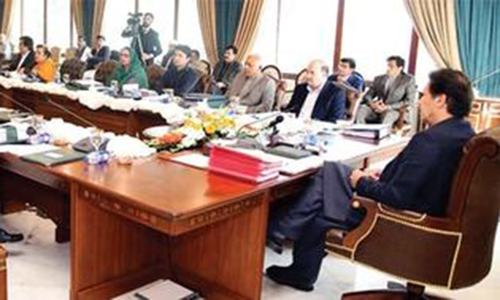ISLAMABAD: Chairperson of the Benazir Income Support Programme (BISP) Dr Sania Nishtar said on Wednesday that disciplinary action would be taken against government officers of grade 17 and above who had received BISP assistance meant for the poor.
In a post on Twitter, Dr Nishtar said 2,543 government officers of grade-17 and above had got themselves registered among the beneficiaries from the social safety net and received the assistance meant for the poorest of the poor. They have been excluded from the programme.
“True: 2,543 exited from BISP_Pakistan are government officers/their spouses of Grade 17 and above and their names have been exited,” she wrote on her Twitter account, adding that the social safety net had initiated disciplinary action against these officers.
The BISP has also written to the provincial chief secretaries and federal ministries whose officers had illegally enrolled themselves as BISP beneficiaries. They have been informed that action is under way against these people.
To avoid such irregularities in future, appropriate measures had been taken under the government’s Ehsaas programmer reforms, the BISP chairperson said.
According to official data, the highest number of government officials receiving the BISP assistance was from Sindh. As many as 1,122 officers of Grade-17 and above from the province had been BISP beneficiaries.
The second highest number came from Balochistan where 741 government officials were signed up for the poverty alleviation scheme. From Khyber Pakhtunkhwa, 403 government officials availed the BISP funds, while 137 did so from Punjab.
From the federal government, 62 officers received the programme funds. Additionally, one officer of the Pakistan Railways, 22 of Pakistan-administered Kashmir, and 49 of Gilgit-Baltistan were also marked as undeserving recipients of the BISP.
From within the BISP itself, six officers were listed among the beneficiaries.
Last month, Dr Nishtar had announced that the government had conducted forensic data analysis and identified 820,165 undeserving people who were availing the BISP assistance. She had said the government was ‘exiting’ these people from the programme, adding that this exercise would be conducted annually to weed out any beneficiary who had achieved financial stability so that the funds could be disbursed to more deserving people.
Launched in July 2008, the federally-funded BISP is Pakistan’s largest social safety net, catering to women and benefiting around 5.4 million people, according to data released in 2016.
Published in Dawn, January 9th, 2020












































